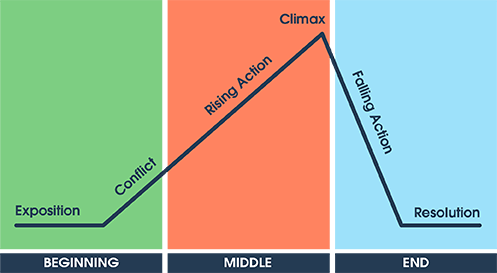Elements of Shakespeare Romances

Puteți găsi acest scenariu în următoarele articole și resurse:

Tipuri de Spectacole Shakespeare
De Rebecca Ray și Kristy Littlehale
Indiferent de ce au fost numiți, piesele lui William Shakespeare vor fi în continuare opere de artă mari, deci este posibil să nu conteze ceea ce le numim. În general, însă, Shakespeare a scris trei tipuri de piese: Tragedia, Comedia și Istoria. Aceste nume ne ajută să înțelegem arhetipurile unui joc și să ne analizăm mai bine evenimentele. La urma urmei, Comedia lui Romeo și Julieta ar fi o piesă foarte diferită de Tragedia Romeo și Julieta. Poate că ar fi o farsă despre doi iubiți de vederi încrucișate, condamnați să sufere greșeli pline de umilință ale identității și slugă de slujitori. Nu ar fi povestea de durere cu care suntem cu toții atât de familiarizați.
'
Consultați câteva dintre celelalte articole educaționale!
Storyboard Descriere
Elements of Shakespeare Romances | Shakespeare's Tragicomedies
Storyboard Text
- Shakespearean Romances
- Shakespeare's Romances are characterized by: A conflict that gets resolved A central older male figure of noble descent A love interest Elements of the Supernatural Themes on a Grand Scale
- Conflict Begins the Play / Resolved by the End
- Central Older Male Figure of Nobility
- Examples from The Tempest by William Shakespeare
- Love Interest
- On the way home from Alonso's daughter's wedding, a storm strikes their ship and shipwrecks Alonso, Ferdinand, Antonio, Gonzalo, Stephano, Trinculo, and Sebastian on an island. The men are split up, and Alonso thinks Ferdinand is dead.
- Elements of the Supernatural
- Prospero, Antonio, and Alonso. Prospero was the Duke of Milan before his brother Antonio (in a plot with Alonso, the King of Naples) usurped his throne and forced him to flee.
- Themes on a Grander Scale
- Miranda, Prospero's daughter, and Ferdinand run into each other on the island, and they instantly fall for one another. This is part of Prospero's plot to take back his rightful place as Duke of Milan.
- Prospero has been studying sorcery for the 12 years he's been exiled. He causes the tempest to bring the boat with his brothers to the island. Ariel turns himself into a sea nymph and controls some of the men with music.
- While Prospero regains his throne, the theme of the play looks at restoration and forgiveness on a grander scale. If Prospero can forgive his brother's treachery, surely it is possible for real people to do the same. In doing so, both peace and stability are rewards for forgiveness. Instead of pursuing pure revenge, Prospero curbs his bloodlust and still regains his power.
Peste 30 de milioane de Storyboard-uri create




